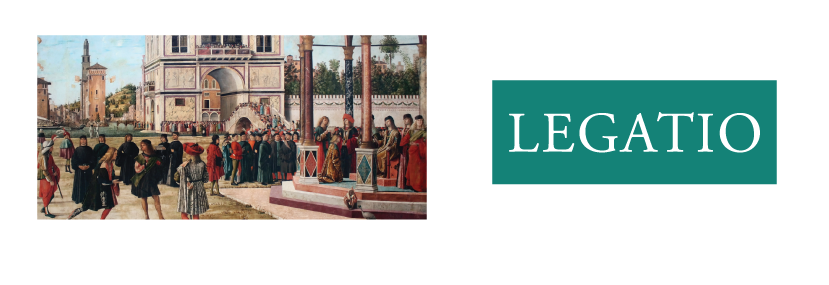About us
For decades, early modern diplomatic history has languished as a stagnant field of academic research. Aloof to wider currents and trends in scholarship, the study of diplomatic history was in fast decline. In recent years, this trend has dramatically reversed and increasing numbers of scholars have answered recent calls for a new approach to diplomatic history. Various routes of historical enquiry are now being explored.
Apart from understanding political, social, economic, commercial and cultural aspects of early modern diplomacy, historians are now adopting new methods and ideas. Today’s scholarship broadens the field of inquiry by amalgamating cultural, semiotic, and anthropological approaches, whilst continuing to undertake fresh archival research and revise established beliefs. Legatio’s mission is to provide a forum to advance our understanding of the role of diplomats and the function of diplomacy in the Renaissance and early modern world, taking into account the traditional histories of politics, the arts, economics, law, and society, along with emerging histories of gender, exchange, identity, and communication.
As such, this journal, seeks to present, disseminate, and promote research of the highest quality that provokes debate and challenges assumptions in an area of historical scholarship too long overlooked.




